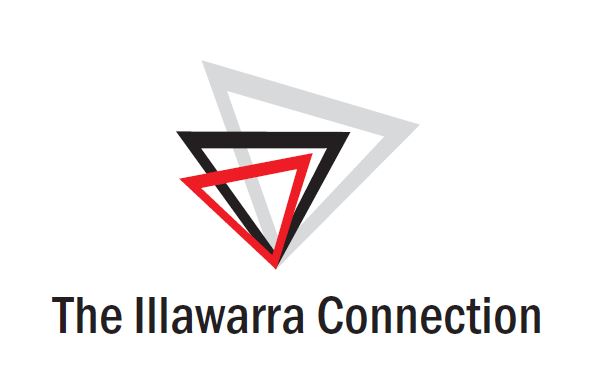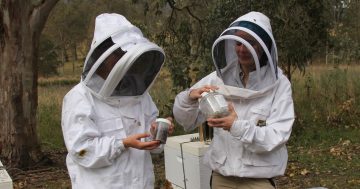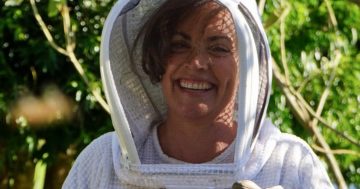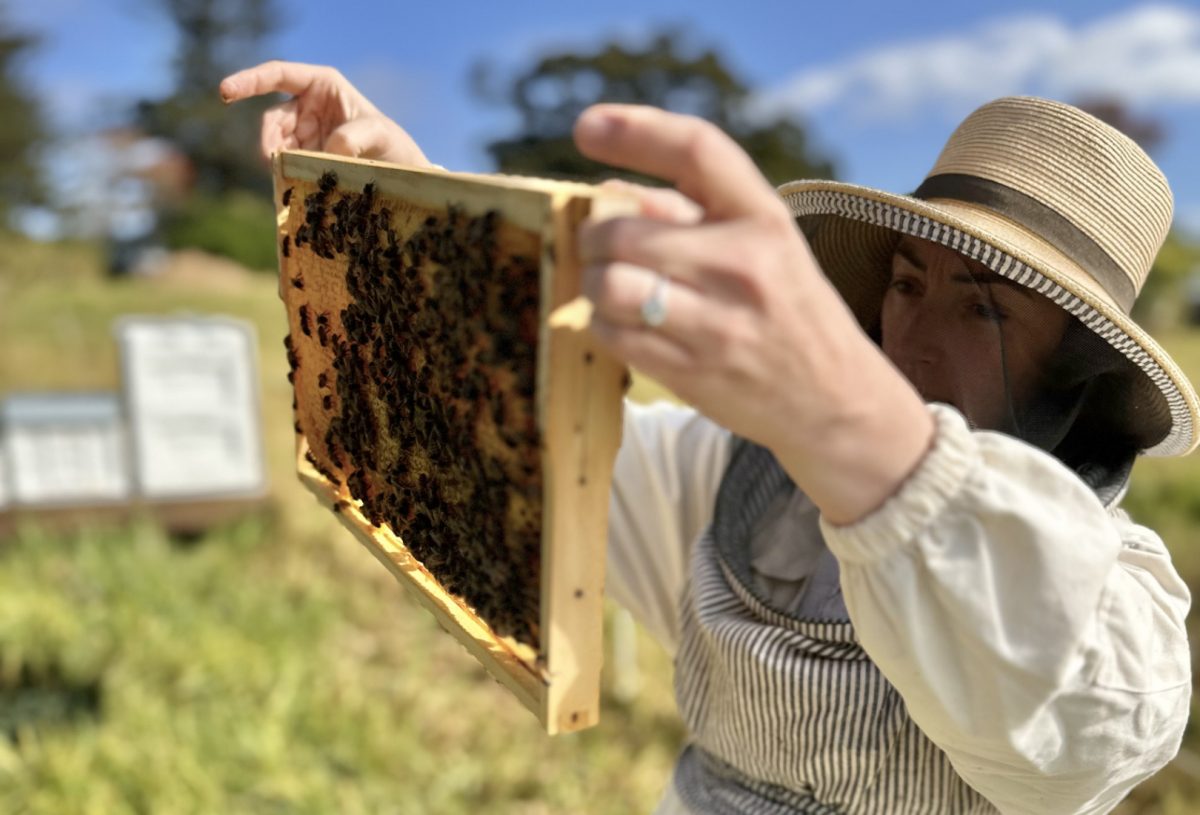
That Local Honey owner Laura Patmore will collaborate with bee breeders across Australia, helping with insemination of queen bees that are strong against varroa mite. Photo: Supplied.
Kiama beekeeper and queen bee rearer Laura Patmore is advancing an innovative approach to bee breeding by expanding into an artificial insemination (AI) program aimed at combating the varroa mite to safeguard bee populations from collapse.
For now, the industry is following the Varroa Mite National Management Group’s management plan, which includes using chemicals in varroa infested colonies.
Laura said these chemicals worked but came with their own risks, creating a compelling reason to focus on bee genetics.
Laura started beekeeping seven years ago after being inspired by the regenerative farming documentary, Kiss The Ground, which asks, “What impact are you making on this earth?”
“That really hit me quite hard because we’ve got three young kids and with the climate being what it is right now, it sat very heavy with me,” she said.
“I threw myself at the beekeeping work, increased my hive numbers and realised that there’s actually a really good career path with breeding bees, and specifically queens.”
Laura established her business, That Local Honey, which initially focused on selling honey but later expanded to include bee sales, including queen bees.
She said when COVID hit and everything became scarce, it was a “wakeup call” to how quickly the food system could unravel, with about 65 per cent of the agricultural system we’ve created underpinned by the beekeeping industry.
“When I started focusing on that queen bee and how she’s everything to that colony, it just grabbed me and there was no going back,” she said.
Laura is now focusing on an AI bee breeding program to introduce resistance to local bees and address the threat posed by the varroa mite, a parasitic pest that can devastate bee colonies.
She said bees possessed the ability to defend themselves against the varroa mite if they had a specific genetic trait.
“Bees open mate up in the sky,” she said.
“A virgin queen will go to a local drone congregation area where all the male bees are.
“It’s like the disco, where all the girls go to find their boyfriend.
“AI gives us exceptional control over that random mating.
“We’ve learnt over time that we can find traits which could be colour, behaviour, temperament, and we can help that trait be passed down.”
She said they were now able to focus on bees that naturally had a sensitivity to varroa mite and focus on breeding those.
“They can adapt to something like varroa mite, but it takes decades,” she said.
“What we can do with AI is we can fast-track that, so we look at colonies that are displaying a trait and we breed off those, so that the local stock doesn’t collapse. Otherwise, numerous colonies are at risk of collapse due to their inherent lack of natural resilience.
“Genetics is the major underpinning of what we need to do to protect against varroa, because the alternative long-term treatment is chemicals.”
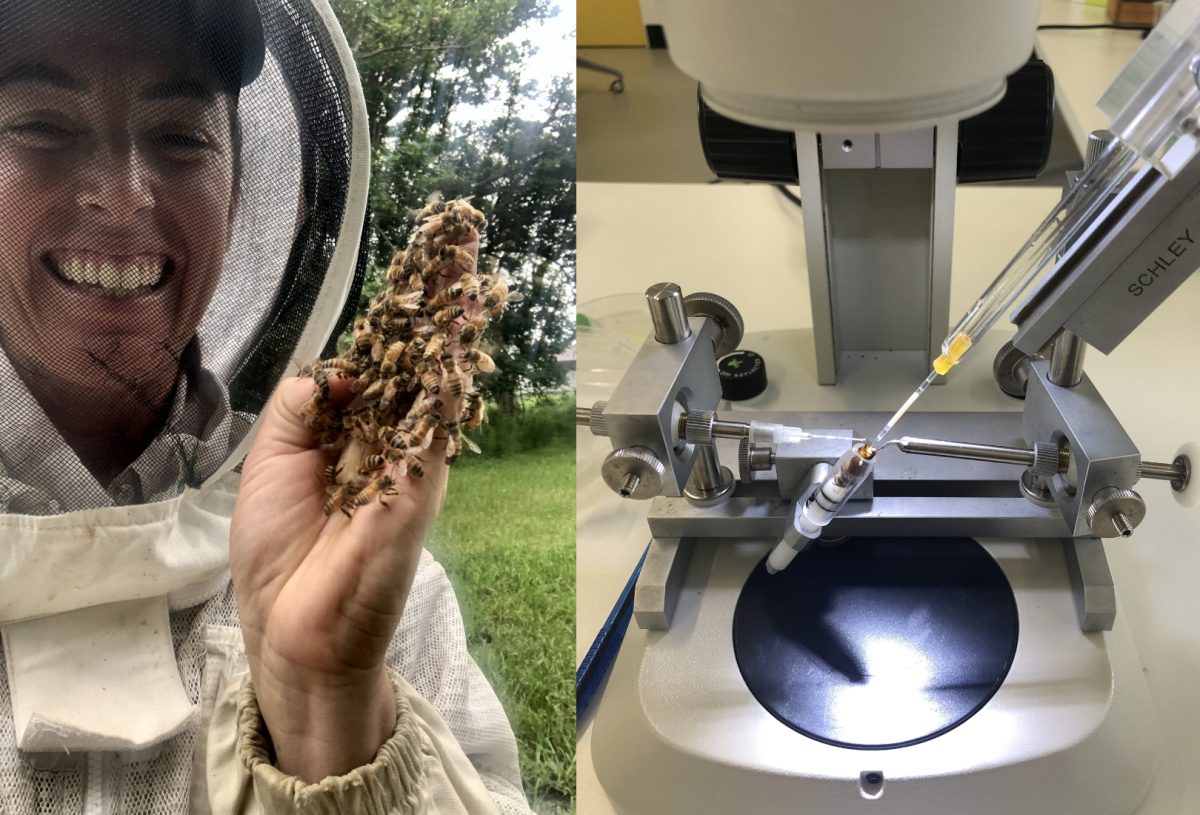
To deliver an AI bee breeding program, Laura needs to acquire vital equipment and has launched a GoFundMe campaign to achieve that. Photos: Supplied.
She said the current management plan, which was introduced when eradication was no longer possible, involved beekeepers with varroa using chemicals in their colonies as the main blanket solution.
“Putting chemicals in a bee colony can get into honey and beeswax and results in bees being dependent on a chemical, instead of helping them to help themselves,” she said.
“Chemicals will never get rid of the mite, it just keeps them at a low enough number that keeps their bees alive.”
Laura’s efforts are part of a broader initiative after gleaning knowledge following the devastation varroa caused in other countries over a period of decades. Australia has been one of the last countries to have varroa.
“One of the really amazing things that has been developed recently is a spray which uses the scent of the varroa mite called UBeeO,” she said.
“They spray that on the surface of a frame of developing bees, and it works as a trigger to see if the bee colony has the hygienic trait. They respond to that smell as if there is varroa there and they uncap the cell.
“They remove the pupae that’s developing because they know that there’s something wrong – they can smell it and that breaks the lifecycle of the mite which was feeding off and breeding in the cell.”
She said when left naturally and untreated, varroa over a couple of decades would wipe out huge numbers of bees, leaving only survivor stock with the trait.
“Technology in that way is going to save us decades of waiting for these bees to be the surviving stock,” she said.
“What we can also do with the insemination is support those bee breeders that are doing all that work with the spray.”
A horse float has been retrofitted into a mobile lab to allow her to graft, which is the process of making queens, but also to inseminate.
She has also completed formal AI training, and launched a GoFundMe campaign to raise the $6500 needed for the microscope and insemination tools.
“It’s not just us trying to be bigger, this is our commitment to answering, ‘What are we doing now that’s going to make our grandchildren thrive?’” she said.
“There are not many people doing queen rearing, and insemination work even less.
“I think what’s going to influence this new landscape as well, is how the backyard beekeeper will have an impact,” she said of education now needed.
Learn more about supporting the GoFundMe campaign.



